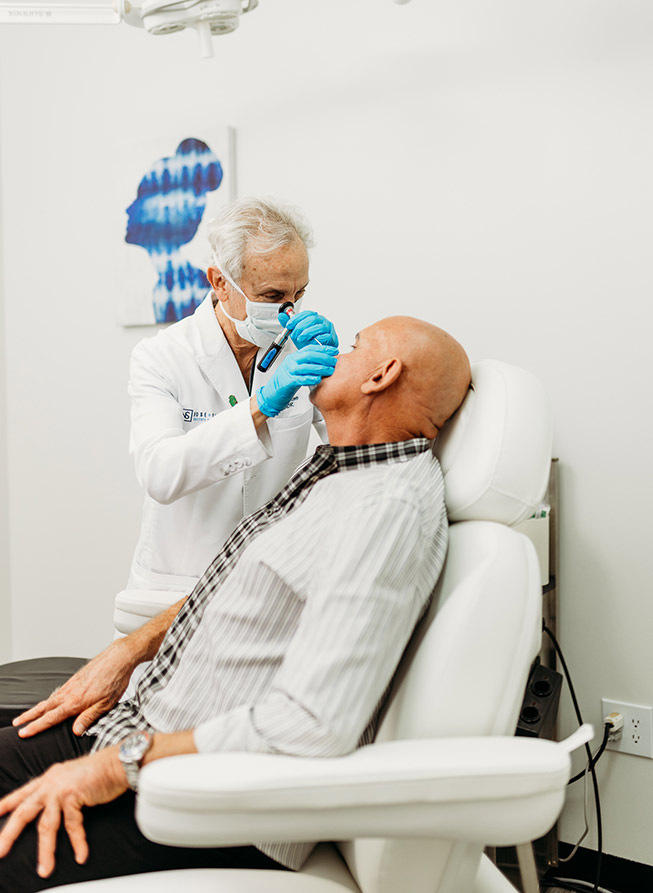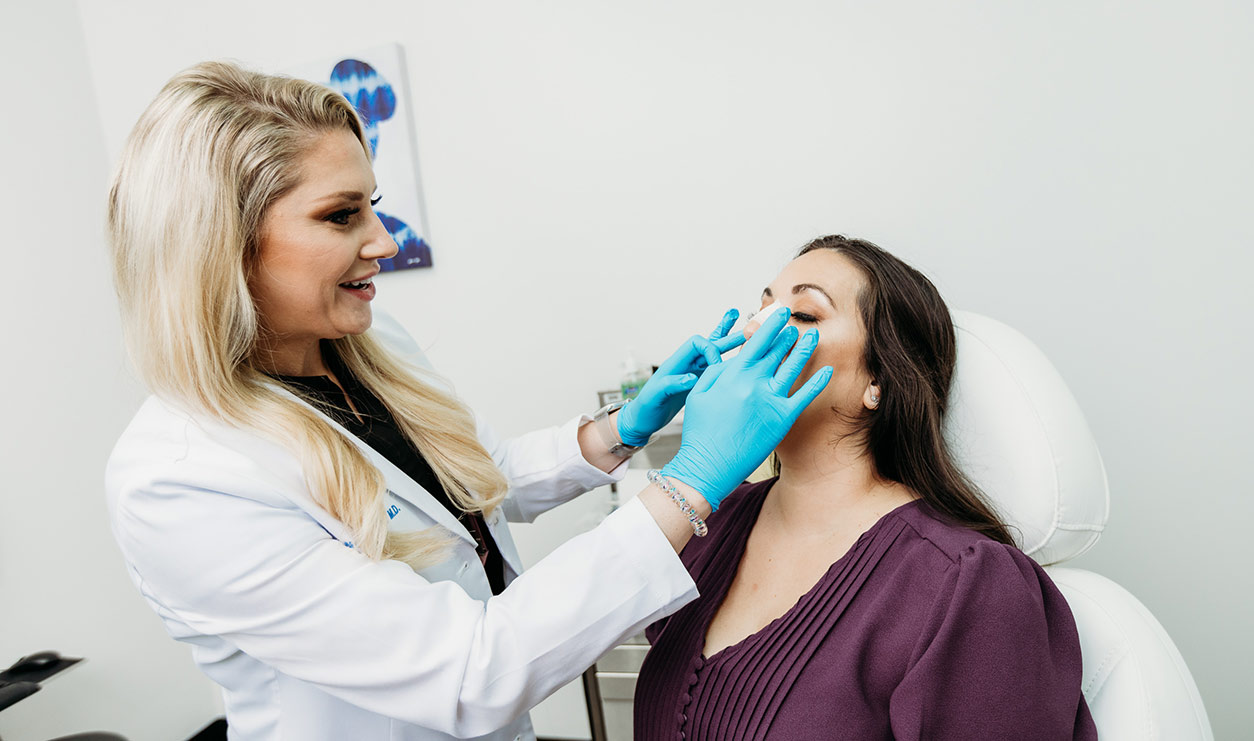
Effective treatments for chronic nasal drainage at the Nose and Sinus Institute of Boca Raton.
Chronic rhinitis, a persistent runny nose or post-nasal drip, affects over 24 million people in the United States. Previously, patients unresponsive to medical or allergic therapy had limited options. Now, thanks to advanced treatments, relief is possible. The posterior nasal nerve, responsible for most cases of a runny nose, can be treated with a quick, non-invasive 15-minute office procedure. Our physicians, Dr. Hancock and Dr. Nachlas were Principal Investigators in early research on posterior nasal nerve ablation, providing expert care with proven success.
Drainage from the nose has almost as many causes as the ways that people describe it. The terms runny nose, excess mucous, and postnasal drainage all refer to disorders that cause patients to be bothered by excess nasal drainage. Three general conditions contribute to most of these issues: Allergic Rhinitis, Nonallergic Rhinitis, and Vasomotor Rhinitis. Treatment options include:

Candidates for treatment are those experiencing persistent nasal drainage or post-nasal drip not responsive to medical management. You may be a candidate for treatment if you meet the following criteria.

Recovery from nasal drainage treatment is typically immediate. Since the procedures are non-invasive, there is no cutting or stitching involved, allowing patients to resume normal activities the next day. Our physicians ensure a smooth recovery process and provide detailed post-procedure care instructions to maximize positive outcomes.
Effective treatment of nasal drainage offers significant relief and improves the quality of life for many patients throughout Boca Raton. These benefits include:
The Nose and Sinus Institute of Boca Raton’s physicians ensure all safety protocols are adhered to and reduce the occurrence of rare risks, such as infections. Patients may experience some common side effects, such as:
The Nose and Sinus Institute of Boca Raton pioneered the Total Nose Approach™ to sinonasal surgery where all of your functional sinonasal complaints and cosmetic concerns can be addressed during one surgery, with one anesthetic, and one recovery. Schedule your consultation and discover an improved quality of life.
Conveniently located in Boca Raton, our ENT doctors serve Boca Raton and all surrounding communities in Palm Beach and Broward Counties
Your provider at the Nose and Sinus Institute of Boca Raton will evaluate you with a history and physical examination, as well as allergy testing and a CT (computed tomography) scan of the sinuses if needed. The procedures to treat drainage and congestion are recommended for patients whose symptoms are not satisfactorily brought under control by medical management.
The procedure involves minimal discomfort as a numbing agent is applied to the nostrils beforehand.
The cost varies depending on the specific treatment and individual case and whether any other procedures are performed at the same time. Many insurance plans cover nasal drainage procedures, and our office can assist with verifying benefits and discussing payment options.
The specific surgical treatment can be done as a separate procedure or in conjunction with procedures done for breathing or sinus issues. After your evaluation, your provider will review all of the findings and the treatment options.
Other nose and sinus procedures that may be performed at the same time as a surgical procedure to address nasal drainage include:
In addition, any cosmetic concerns you have about your nose can be addressed with rhinoplasty surgery during the same operative session.
These are the most common conditions that contribute to nasal drainage and are best explained as follows:
Take charge of your life today! Call us or submit an online form, and you will be speaking with one of our talented surgeons in no time.
(561) 939-7352